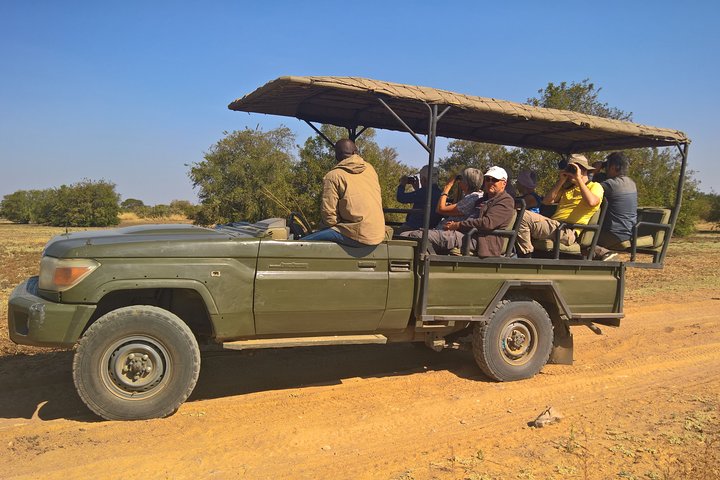
Zakouma a National Park still suitable for visitors, you can enjoy almost exclusive visits thanks to the limited number of travelers who can come to visit.
Numerous Giraffes and antelopes, numerous lions, easily visible elephants from the end of February, buffaloes, crocodiles …. a park rich in birds, a park to be discovered.
N.B. the Park is open from December 1st until at least May
Details of the tour
Total duration: 7 days
Day 1: N’djamena
Meals not included
Accommodation included: hotel
Day 2: N’djamena -Mongo
Meals included: breakfast, lunch, dinner
Accommodation included: bivouac
Day 3: Mongo -Zakouma
Meals included: breakfast, lunch, dinner
Accommodation included: Accommodation is provided in the Bungalows of Campement Tinga accommodation for 2 people in each Bungalow
Day 4: Zakouma National Park
Meals included: breakfast, lunch, dinner
Accommodation included: Campement Tinga
Day 5: Zakouma National Park
Meals included: breakfast, lunch, dinner
Accommodation included: Campement Tinga
Day 6: Zakouma – Mongo
Meals included: breakfast, lunch, dinner
Accommodation included: bivouac
Day 7: Mongo -N’djemana
Meals included: breakfast, lunch
Accommodation included: Hotel
Zakouma Transfer
Upon request we provide the transfer service From r To the Park using Toyota Land Cruiser
Duration
From N’djamena to Zakouma 2 days
catering and bivouac service provided
What’s included
Dinner x 5
Breakfast x 6
Lunch x 6
2 nights in hotel or 1 night in hotel and 1 day use room
bivouac equipment
invitation letter
3 nights all inclusive at Campement Tinga – drinks are not included
What is excluded
flights
seen
travel insurance
sleeping bag
bottled drinks apart from mineral water during transfers
Characterised by perennial river systems, rich floodplains, and seasonal wildlife migrations, Zakouma National Park is a unique story of revival for central Africa. Once a stronghold for well over 4,000 elephants, by 2010 the park had lost 90% of its elephants to ivory poachers, while further havoc was wreaked on the park and local communities by poachers on horseback. But in that same year, the Government of Chad invited African Parks into a longterm agreement to manage Zakouma, to protect the last approximately 500 elephants, and to re-establish stability for the surrounding communities. The Park’s law enforcement and community engagement strategies were immediately overhauled and the results were palpable. Zakouma became known as a place of safety, a source of employment, and a service provider to communities previously desperately in need.
